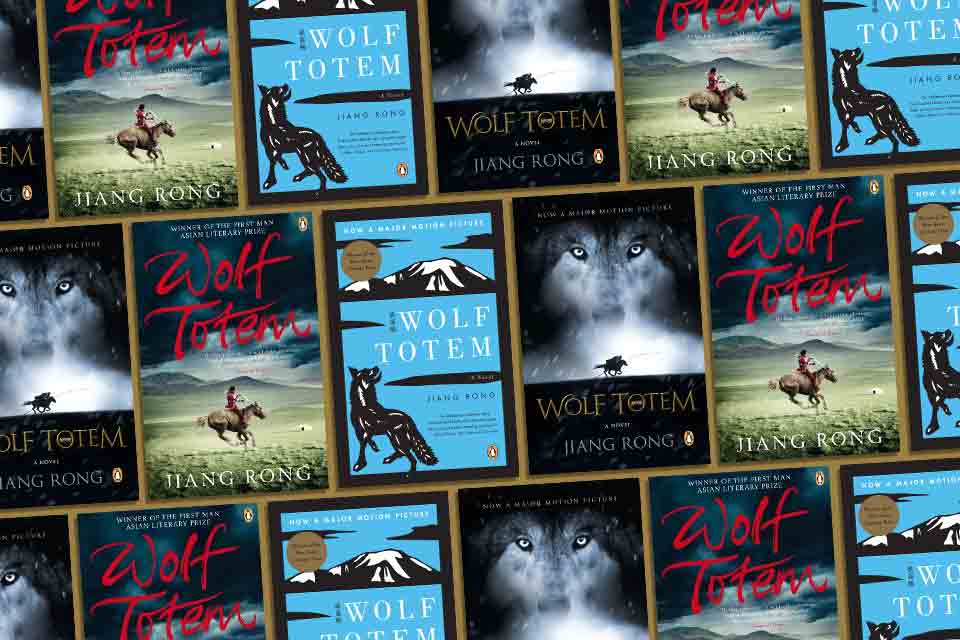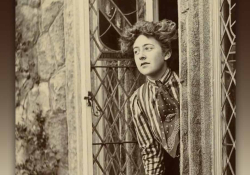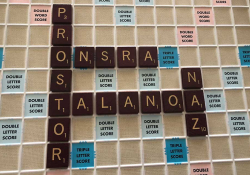Translating Ecology and Identity: How Wolf Totem Became a Global Environmental Parable

Jiang Rong’s Wolf Totem (2004) transcended cultural boundaries to become a global environmental parable. This essay explores the transformative roles of publishers, translators, and editors in reshaping the novel’s themes for a wider audience.
Since its release in 2004, Jiang Rong’s Wolf Totem has captivated readers in China and beyond. Set in the vast Mongolian grasslands, the novel explores the intersection between humans and nature, touching on themes of cultural identity, modernity, and ecological conservation. Yet when Penguin Books acquired the translation rights, Wolf Totem underwent a subtle transformation in the hands of publishers, translators, and editors, emerging as a narrative that resonated with a distinctly global environmental message. Through this collaborative process, Wolf Totem evolved beyond its original context, becoming a parable that speaks to readers worldwide about the need for environmental preservation.
The following essay explores the pivotal roles played by the publisher, translator, and editors in adapting Wolf Totem for an international audience. Each of these agents contributed to reframing the novel’s themes to appeal to a Western readership, foregrounding ecological issues over the sociopolitical commentary central to the original Chinese text. This collaborative approach demonstrates how translation extends beyond linguistic transference, becoming an interpretive act that bridges cultural gaps and amplifies universal concerns.
Translation extends beyond linguistic transference, becoming an interpretive act that bridges cultural gaps and amplifies universal concerns.
The Publisher’s Vision and Global Context
Wolf Totem quickly rose to bestseller status in China, celebrated for its unique portrayal of Mongolian culture and the ecological relationship between humans and nature. However, less widely known is the role that Jo Lusby, an executive at Penguin Books North Asia, played in reimagining the novel as a global story. Lusby’s approach extended beyond standard publishing strategies, as she envisioned the novel not just as a Chinese bestseller adapted for Western audiences but as a narrative reshaped for ecological resonance in the West (Goldkorn, 2023). For Lusby, the novel’s environmental themes, symbolized by the wolves’ relationship with the grasslands, resonated powerfully with issues central to international ecological discourse.
Lusby’s strategic decision to market Wolf Totem as an ecological novel signaled a departure from traditional approaches to literary translation. Instead of focusing on cultural elements specific to Chinese social history—such as the interactions between the Han and Mongolian peoples—Penguin highlighted universal themes that would attract ecologically minded readers globally. As noted in an interview with Lusby, the wolves’ symbolic importance as protectors of ecological balance made them accessible and compelling figures for readers concerned with global conservation issues (Goldkorn).
This vision also influenced Penguin’s choice of translator. Rather than selecting a translator focused solely on linguistic fidelity, Lusby selected Howard Goldblatt, who was known for his ability to adapt complex Chinese works while maintaining their essence. Goldblatt’s role as translator reflected Penguin’s commitment to striking a balance between cultural authenticity and global accessibility, ensuring that Wolf Totem felt relevant to its new audience (Stalling, 2014).
Howard Goldblatt’s Role: The Translator as Mediator
Howard Goldblatt, regarded as one of the foremost translators of Chinese literature, took an interpretive approach to Wolf Totem that extended beyond linguistic accuracy. His goal was to preserve the “soul” of the novel while rendering it relatable to Western readers, particularly those drawn to environmental themes. In an interview, Goldblatt remarked on his commitment to “doing justice to the reader rather than the author,” emphasizing that a translator’s responsibility includes adapting the narrative to engage a new audience (Ji, 2009).
Goldblatt’s approach was especially evident in his treatment of the wolves, which play a central role in Jiang Rong’s narrative. In Chinese folklore, wolves are often imbued with mystical qualities, serving as symbols of endurance, wisdom, and resilience. Translating this spiritual symbolism literally could have made the text feel inaccessible to Western readers. Instead, Goldblatt chose words and metaphors that Western readers could connect with, emphasizing the wolves as symbols of nature’s resilience and ecological balance. As noted in a discussion on Goldblatt’s approach, he adapted phrases to focus on the ecological aspects of the wolves, aligning them with Western readers’ environmental awareness while preserving the wolves’ symbolic significance (Lingenfelter, 2007).
Goldblatt chose words and metaphors that Western readers could connect with, emphasizing the wolves as symbols of nature’s resilience and ecological balance.
One notable example of Goldblatt’s adaptation is his handling of descriptions that portray wolves with supernatural qualities. In the original text, Jiang Rong describes the wolves with a reverence that reflects Chinese spiritual beliefs. Goldblatt, however, translated these descriptions in a way that emphasized the wolves’ role in maintaining ecological harmony, a theme that would resonate with Western readers who view nature as an interconnected system. In doing so, he retained the symbolic power of the wolves while adapting their depiction to align with a global ecological perspective.
Goldblatt’s approach extended to the pacing and tone of the narrative as well. Recognizing that Western readers are accustomed to faster-paced, narrative-driven stories, he streamlined lengthy passages and opted for expressions that maintained narrative flow without sacrificing thematic depth. This adaptive strategy is noted by scholars who have observed Goldblatt’s unique ability to balance fidelity to the original with creativity in translation, crafting a text that feels both authentic and accessible (Hu and Guo, 2017). Through these choices, Goldblatt demonstrated that translation involves both preserving meaning and making the text resonate across cultural contexts.
Editing and Cultural Adaptation
While translators often receive much of the recognition in literary adaptation, the role of editors is equally significant yet often understated. In the case of Wolf Totem, Penguin Books’ editors played a crucial role in shaping the text to appeal to Western readers. Their task involved more than linguistic adjustments; it required bridging cultural gaps and refining the novel’s pacing to ensure it felt coherent and engaging to an international audience (Basu, 2011). By adjusting passages, condensing sociopolitical commentary, and restructuring dialogues, the editors allowed Wolf Totem’s ecological message to come to the forefront.
One specific editorial decision involved adapting the novel’s opening line, which originally referenced the Han people’s fear of wolves—a concept deeply tied to ethnic identity in China. The English version reframed this as a more universal fear of wolves, focusing the narrative on humanity’s relationship with nature rather than cultural distinctions. This choice established an immediate connection with Western readers, inviting them to interpret the novel’s message as a reflection on human/nature relations rather than ethnic tensions. This editorial adaptation, though subtle, illustrates how translation can create a narrative that feels universally accessible without losing the essence of the original (Abrahamsen, 2008).
The editorial team also played a role in condensing philosophical discussions within the novel, which in the Chinese original include lengthy debates on tradition, loyalty, and the human spirit. While these discussions enrich the novel’s thematic depth, they could feel dense or overly specific for readers unaccustomed to such exposition. By condensing these sections, the editors prioritized the novel’s ecological focus, creating a streamlined experience for readers while retaining its philosophical underpinnings. This editorial approach reflects the insight that translation involves not only linguistic accuracy but also structural adaptation to meet the expectations of a new cultural audience (Stalling, 2014).
Foregrounding Ecological Themes for a Global Audience
As a result of these combined efforts, the English version of Wolf Totem emerged with a heightened focus on ecological themes, transforming it into a narrative about humanity’s impact on the environment. This thematic shift was not merely an editorial choice but a philosophical reinterpretation that allowed the novel to resonate with readers concerned about climate change, biodiversity loss, and ecological preservation. Western readers found the novel’s portrayal of the grassland’s fragile ecosystem compelling, seeing in the wolves’ role a metaphor for nature’s vulnerability and resilience (Qin, 2015).
This transformation exemplifies how translation and editorial adaptation can reshape a story, amplifying its relevance to global readers while preserving its core message. By foregrounding the ecological aspects of Wolf Totem, the translation team crafted a story that speaks to the urgency of environmental responsibility. This thematic reinterpretation highlights the power of translation not only to convey stories across languages but to bridge cultural divides, offering a narrative that feels universal in its resonance and timely in its message.
Translation and editorial adaptation can reshape a story, amplifying its relevance to global readers while preserving its core message.
Conclusion: Translation as Meaning-Making
The journey of Wolf Totem from a Chinese bestseller to an international ecological narrative exemplifies translation as an interpretive art. Through the combined efforts of the publisher, translator, and editors, the English version became more than a mere adaptation; it became a bridge between cultures. As readers engage with Wolf Totem, they encounter not only a translation but a story reimagined to reflect shared human concerns.
Through careful interpretation and adaptation, Wolf Totem exemplifies the potential of translation to create connections that transcend language. In shaping the novel for global audiences, the translation team preserved its essence while expanding its relevance, underscoring that translation is about more than words; it is about meaning, understanding, and the collective stories that unite us all.
Guangzhou University
Works Cited
Abrahamsen, Eric. “Translation Course: Jiang Rong vs. Howard Goldblatt.” Paper Republic: Chinese Literature in Translation, March 28, 2008.
Basu, Chitralekha. “Right to Rewrite?” China Daily, August 19, 2011.
Goldkorn, Jeremy. “From Prince Harry to Harry Potter in China—Q&A with Publishing Veteran Jo Lusby.” The China Project, March 2023.
Hu, Weihua, and Jirong Guo. “An Analysis of Howard Goldblatt’s Translator Subjectivity from the Perspective of Eco-Translatology.” Foreign Language Education and Technology, 2017.
Ji, Jin. “I Translate, Therefore I Am: An Interview with Howard Goldblatt.” Contemporary Writers Review, 2009.
Lingenfelter, Andrea. “Howard Goldblatt on How the Navy Saved His Life and Why Literary Translation Matters.” Full Tilt 2 (2007): 35–37. Qin, Amy. “Q. and A.: Jiang Rong on ‘Wolf Totem,’ the Novel and Now the Film.” Sinosphere, February 2015.
Stalling, Jonathan. “The Voice of the Translator: An Interview with Howard Goldblatt.” Translation Review 88, no. 1 (2014): 1–12.









